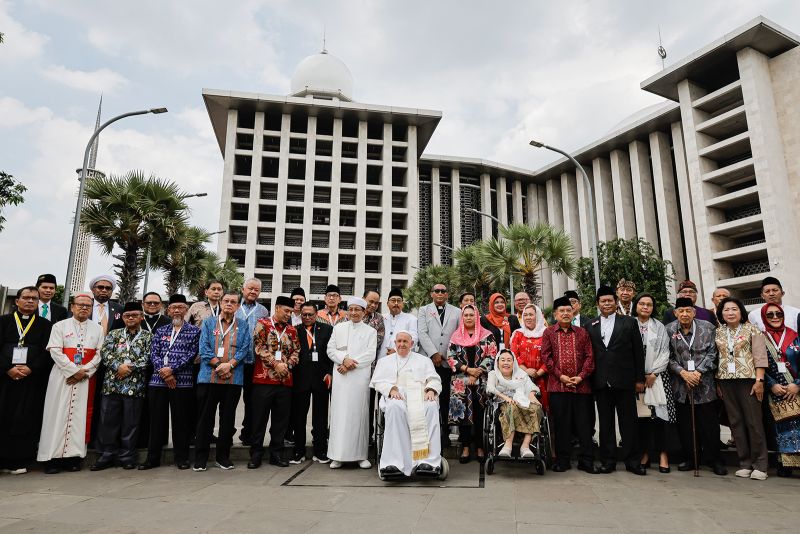
Pope Proclaims War against Climate Change and Religious Extremism during Historic Visit to Southeast Asia’s Largest Mosque
The visit of a Pope to Southeast Asia’s largest mosque is not just a representation of two contrasting religious ideologies coming together, but it is a global symbol of unity, tolerance, and shared responsibility. Interestingly, Pope Francis emphasized two vital global concerns during his visit – battling climate change and religious extremism. His words warrant analysis because they touch on the intersections of religion, international relations, and environmental consciousness which are key in today’s socio-political arena.
The Pope’s visit to Southeast Asia’s largest mosque, Istiqlal Mosque in Jakarta, Indonesia, was a display of interfaith dialogue. Emphasizing mutual respect and collaboration, he urged religious leaders from all sects to join forces against extremists who distort religion to justify violence. The Pope acknowledged that the people of various faiths could co-exist peacefully and productively as signified by his visit to the mosque, standing as a beacon of Muslim faith in a country recognized for its religious diversity. As the spiritual leader of over a billion Catholics worldwide, his words of unity and religious tolerance hold great significance. They convey the message that religious extremism, rather than religion per se, is a threat to global peace, thus encouraging a universal fight against all forms of violent extremism.
Simultaneously, Pope Francis also called attention to the common cause of battling climate change, an issue he frequently stresses. Man-made global warming has become a pressing issue that demands immediate attention and joint-action. Irrespective of religious differences, climate change affects everyone, threatening livelihoods, displacing people, and testing the resilience of communities. The Pope’s emphasis on the urgency to combat climate change during his mosque visit reflects the recognition that environmental preservation is a common ground that binds all–believers and non-believers, the east and the west, developed and developing countries.
The Pope’s dual emphasis on combating religious extremism and climate change encourages a dilemma integral to these issues, action through collaboration. Besides the fact that extremism and climate change demand international attention, he stressed that no nation, religion, or individual could effectively address these concerns independently. On combating religious extremism, the Pope stressed the power of inter-religious dialogue and cooperation, while emphasizing collective effort to combat climate change.
Pope Francis’s speech at the Istiqlal Mosque underlines the necessity of unity and collective action in dealing with two of the most significant global concerns of our time. Amidst the symbolism of his visit to the mosque, the Pope succeeded in creating a vision of a world united in its fight against religious extremism and the pressing environmental concern of climate change. Moreover, his message is inclusive, touching upon the shared humanity and the shared responsibility of all, irrespective of faith or country.
Moving beyond the religious plane, Pope Francis’s discourse embodies universal values that inspire cooperation and mutual respect. It is an optimistic outlook where climate change’s battle is not regional or national; it is a battle for and by humanity. Similarly, the fight against religious extremism is not a fight against any specific religion but a struggle for humanity’s preservation. Given the rising threats to global peace and environmental stability, the Pope’s message resounds with a sense of urgency and commitment demanded from all.
